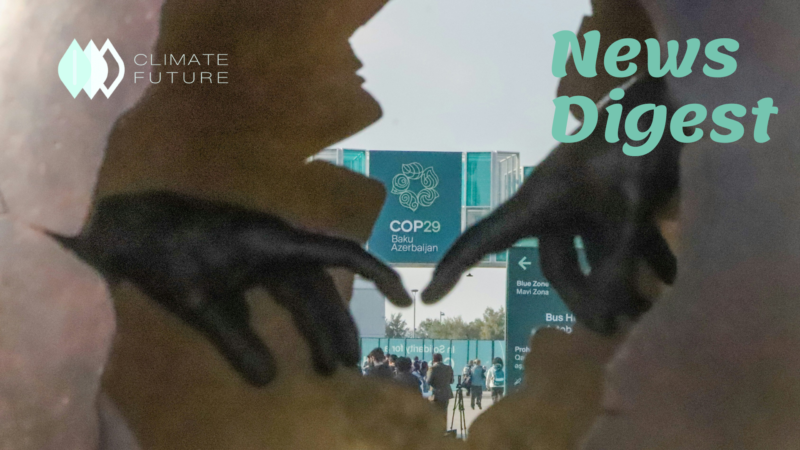WMO calls for more investment in integrated weather and climate services
Investment in weather and climate services is crucial to make sure that energy infrastructure is resistant to harnessing the power of energy emitted from sources like wind and the sun and climate-related shocks. WMO is improving its activities to promote climate information and tailored weather to support the change from fossil fuels to green energy by 2050. WMO Secretary-General gives the right time support for the important decade of the energy transition to net zero. The agency has set a large role in building effective services to key socio-economic sectors, particularly energy. Energy generation must technically shift from burning fossil fuels to renewable energy sources to limit temperature rise to 1.5° Celsius. WMO stated that the Intergovernmental Panel on Climate Change (IPCC) reported that the previous years were warmer than any period since 125,999 years ago. In addition, greenhouse gas emissions globally continued to increase in the past century because of the unsustainable use of resources. Some 73 percent of emissions are from the energy sector, showing the need for a rapid transition to clean energy to meet growing energy demands by reducing emissions.
Cosmic crops poised for harvest on Earth
The need for creative scientific and technological solutions to increase food production, as well as more resilient crops and sustainable farming practices, is obvious given that the world’s population is predicted to reach approximately 10 billion people by the year 2050. Although similar experiments have been conducted since 1946, this is the first time the IAEA and the UN Food and Agriculture Organization (FAO) are conducting genomic and biological analyses on seeds sent to space in their roughly 60 years of experience with inducing plant mutations that could be beneficial to people and the planet. The initiative attempts to create new crops that can adapt to climate change and improve global food security. Arabidopsis, a species of cress that has been thoroughly studied by plant biologists and geneticists, and sorghum, a member of the millet family and a drought- and heat-resistant grain farmed for sustenance in many underdeveloped nations, are the two types of seeds that are now in space. On November 7, 2022, NASA transported the seeds on an unmanned cargo shuttle. They experienced a complicated combination of cosmic radiation, microgravity, and severe temperatures while in space, both inside and outside the International Space Station (ISS).
Holistic approach urgent for health of people, animals and environment
The leaders of the Food and Agriculture Organization (FAO), UN Environment Program (UNEP), World Health Organization (WHO), and UN-backed World Organisation for Animal Health (WOAH) have united in the face of numerous global emergencies, including COVID-19 and Ebola, ongoing threats of disease spillover between animals and humans, loss of biodiversity, and climate change.
The Quadripartite leaders urge all nations and important stakeholders to adopt seven priorities for action, highlighting the need for more collaboration and commitment to translate the One Health strategy into policy action in all countries:
1. One Health should be given top priority on the international political agenda and should serve as the guiding principle for all international organizations, including the new global pandemic treaty that is currently being negotiated.
2. Strengthen national One Health strategies, plans, and policies, with costs and priorities set in accordance with the Quadripartite One Health Joint Plan of Action (OH JPA).
3. Quicken the adoption of One Health strategies by assisting national One Health development agendas.
4. Create intersectoral One Health workforces with the knowledge, tools, and resources necessary to effectively and quickly identify, prevent, detect, and respond to health threats.
5. Strengthen and maintain the prevention of pandemics and health hazards at their source by concentrating on activities and locations that raise the possibility of zoonotic disease transmission from animals to people.
6. Promote and strengthen One Health research, development, technology transfer, and sharing of new tools and data, as well as knowledge and evidence generation and interchange.
7. Boost investment and funding in One Health initiatives and plans to ensure their widespread implementation, including funding for health danger prevention at the point of origin.
In accordance with the OHJPA, which was introduced in October of last year, the Quadripartite has been playing a key role in promoting and coordinating a worldwide One Health strategy.
Indonesia sets aside USD 455 mn to subsidise electric motorcycle sales
Officials said on Monday that Indonesia will devote 7 trillion rupiah (USD 455.88 mn) in state funds to subsidize the sales of electric motorcycles until 2024 as it pushes for mass adoption of EVs in an effort to draw investment to the domestic industry. The 800,000 new electric motorbike sales and the conversion of 200,000 motorcycles with internal combustion engines will be covered by the subsidies, according to Finance Minister Sri Mulyani Indrawati. According to media reports citing information from the Association of the Indonesian Motorcycle Industry, there were over 32,000 electric motorcycles on the country’s roads as of October last year. The government expects that adding an additional 1 million people by 2024 will contribute to a decrease in the usage of fossil fuels and the development of EV production facilities to make use of the nation’s abundant nickel reserves, a crucial component in the manufacture of batteries.



